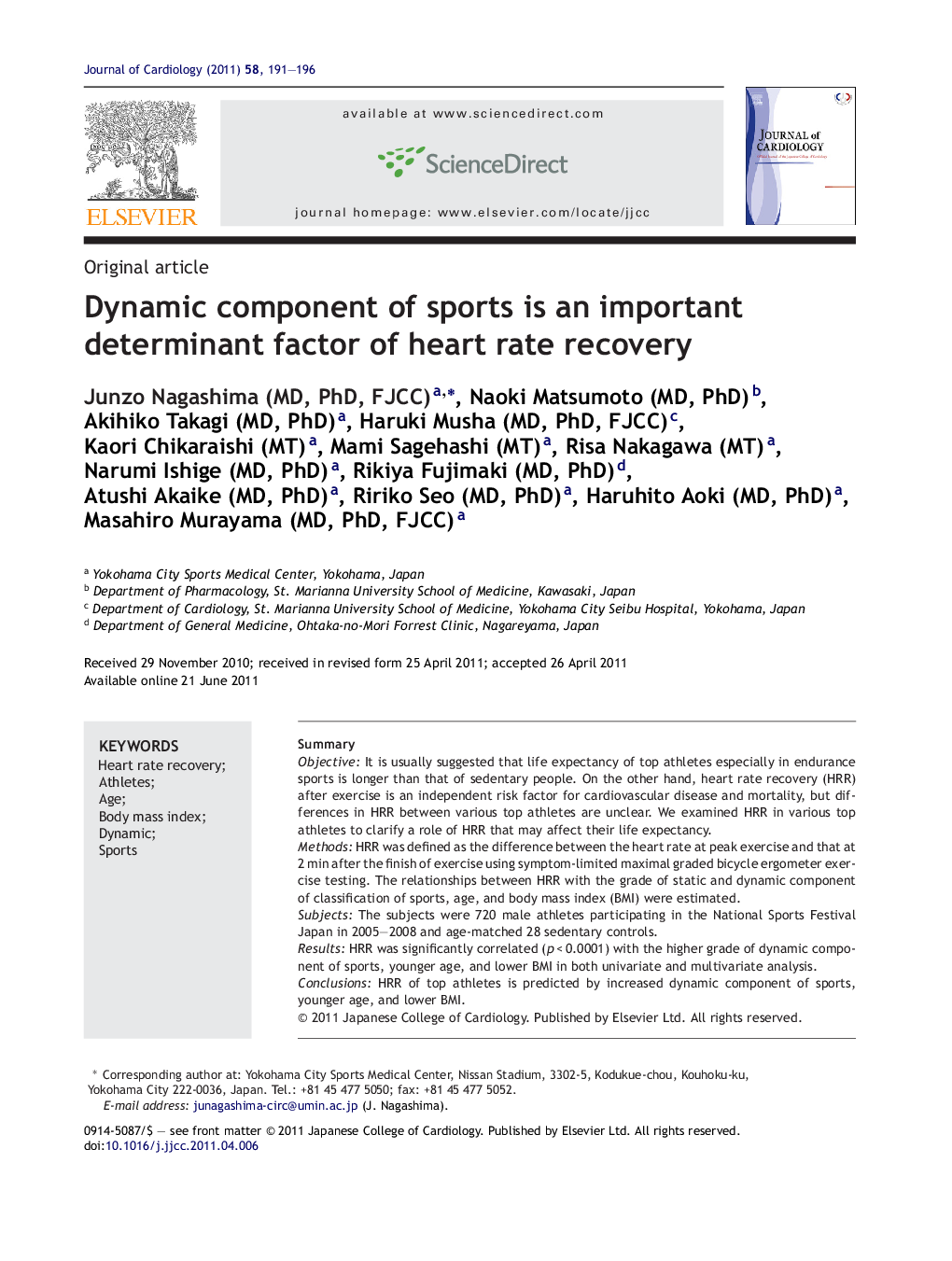| Article ID | Journal | Published Year | Pages | File Type |
|---|---|---|---|---|
| 2963365 | Journal of Cardiology | 2011 | 6 Pages |
SummaryObjectiveIt is usually suggested that life expectancy of top athletes especially in endurance sports is longer than that of sedentary people. On the other hand, heart rate recovery (HRR) after exercise is an independent risk factor for cardiovascular disease and mortality, but differences in HRR between various top athletes are unclear. We examined HRR in various top athletes to clarify a role of HRR that may affect their life expectancy.MethodsHRR was defined as the difference between the heart rate at peak exercise and that at 2 min after the finish of exercise using symptom-limited maximal graded bicycle ergometer exercise testing. The relationships between HRR with the grade of static and dynamic component of classification of sports, age, and body mass index (BMI) were estimated.SubjectsThe subjects were 720 male athletes participating in the National Sports Festival Japan in 2005–2008 and age-matched 28 sedentary controls.ResultsHRR was significantly correlated (p < 0.0001) with the higher grade of dynamic component of sports, younger age, and lower BMI in both univariate and multivariate analysis.ConclusionsHRR of top athletes is predicted by increased dynamic component of sports, younger age, and lower BMI.
